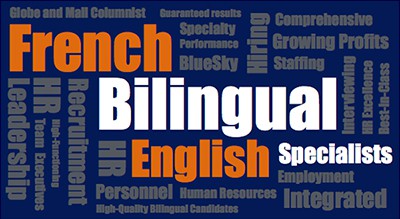How Do I Break Out Of A Career Rut?
THE QUESTION
I am pursuing a certified general accountant designation at fourth level and work as a lease accountant with a property management firm in Toronto. While on the path toward a CGA, I want to get into a financial reporting position – largely dominated by either chartered accountant students or designated CAs – but the recruiters I meet with are only interested in putting me into positions in property accounting or lease accounting.
How do I break this high-entry barrier to gain a foot in the door into financial reporting, a branch I’m passionate about and can perform as competently as any CA ? Why is the recruitment industry so rigid in terms of placing candidates? And what is in my control as a CGA student to start planning on getting into the right branch of accounting while I work on my program?
THE ANSWER
I hear your frustration as you strive to make this career move, but here’s the challenge for recruiters: Their clients – the employers – want candidates whose experience directly mirrors the job at hand. Employers will question recruiters who put forth candidates who don’t have the qualifications they are asking for.
Having said that, here are some career-transition recommendations from human resource professionals within your industry:
“Start out in a smaller, private organization with a wider scope of responsibility to get exposure to the overall accounting and reporting structure of an organization,” said Jenny Affe, vice-president of human resources at Greenwin Inc., a Toronto-based apartment property management company. “Another option is to get exposure as an internal auditor in a larger firm, typically a public company.”
Ms. Affe recommends looking at your current work environment and culture if it allows for this type of career development. Consider enrolling in a mentorship program or joining a special project committee.
“In our organization, if an employee demonstrates an interest to explore another area of the business, we meet to discuss how we can provide that exposure,” she said. “Sometimes that means shadowing an individual to understand the day-to-day role, and to prepare for any additional educational or experience requirements.”
Corinne Warwaruk, director of talent at professional services firm Deloitte in Edmonton, points out that career paths are never straight lines. “Consider other analyst or record-keeping roles that may complement and broaden your skills and could lead to a financial reporting role,” she said.
Most importantly, sell your skills, Ms. Warwaruk said. “Highlight, through your CV and cover letter, skills such as the preparation of financial information or analysis of financial information,” she said. “Identify experience from your existing role that is transferable to what a prospective employer is seeking.”
Salony Lyons, talent attraction leader at professional services firm KPMG in Toronto, recommends having a specific objective at the top of your résumé – for example: “Objective: CGA candidate, experienced in lease accounting, seeking to redirect towards a progressive career in financial reporting.”
Ms. Lyons said researching prospective employers is critical. “Many organizations divide their financial reporting roles by functional reporting groups (such as accounts payable reporting, accounts receivable reporting). Such a structure will have entry-level roles that require less financial reporting experience and will have future opportunities for growth to progress to more complex accounting.”
Here is a parting thought from Ms. Affe: Simply stating that you are deeply passionate will not get you the interview. However, stating that you are deeply passionate and demonstrating what you have done to position yourself for this next career move will be instrumental and valued by a hiring manager.
“It certainly is in our organization, sometimes more so than the experience itself,” she added.
This article was originally posted in The Globe And Mail.











